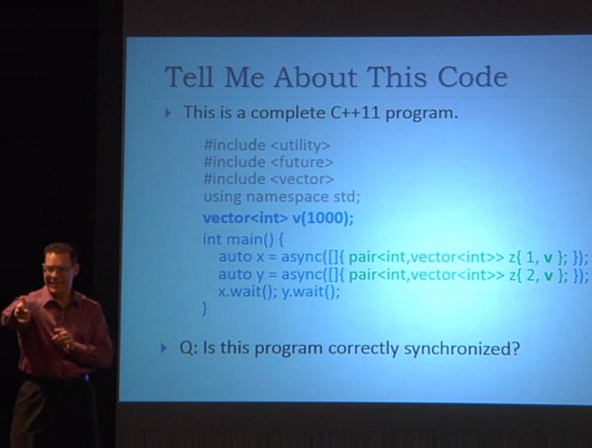 In August, Herb Sutter gave a brand new 30-min talk at C++ and Beyond where he laid out the fundamentally new meanings of two long-time C++ keywords:
In August, Herb Sutter gave a brand new 30-min talk at C++ and Beyond where he laid out the fundamentally new meanings of two long-time C++ keywords:
You Don't Know [const] and [mutable]
Herb Sutter
There’s a major change in C++11 that [...] rewrites pre-C++11 design guidance and is directly related to writing solid code in a concurrent and parallel world. And it isn’t just academic — everyone is going to have to learn and apply the new C++11 guidance that we’ll cover in this session.
This is a great example of how C++11 is a simpler language: We can stop the Cold War-era waffling about subtleties about what 20th-century C++ const means, and proudly declare modern C++ const has the simple and natural and "obvious" meaning that most people expected all along anyway.
One of the most common questions after the talk was, "Do other C++ experts agree with Herb's conclusions?" The answer is yes -- regarding his upcoming The C++ Programming Language, Fourth Edition, Bjarne Stroustrup writes: "I do point out that const means immutable and absence of race conditions in the last Tour chapter. I plan more for the concurrency chapter." Look for the third Tour chapter to be posted here next week, and the aforementioned last Tour chapter to be posted here in early February.
Enjoy.

Add a Comment
Comments are closed.